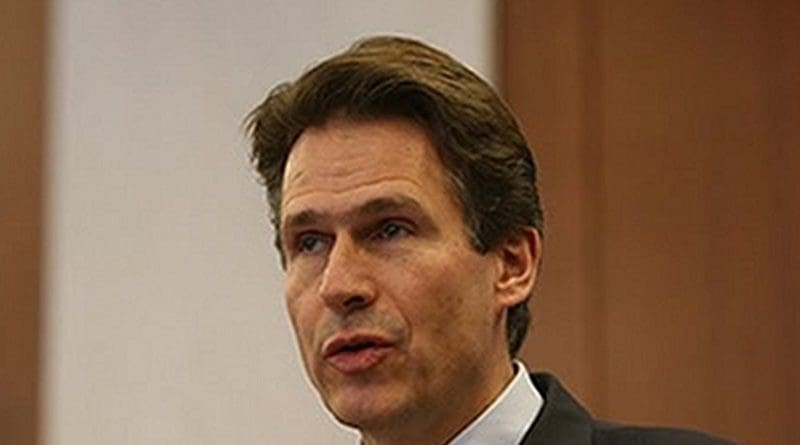Interview With Gunnar Wiegand, Managing Director Asia And Pacific At EEAS
EUAC: Welcome to the new position. What were your first thoughts on being appointed as MD for Asia?
GW: I was delighted to be moving to a region which is characterised by its dynamic growth, its diversity and home to four of the EU’s strategic partners. I travelled frequently to Asia when I was spokesman for Commissioner Chris Patten so I am very pleased to reconnect with Asia.
EUAC: Why does Asia matter to Europe?
GW: As HR/VP Mogherini often says security is global in nature, so Asia’s role in tackling global challenges like climate change, illegal migration, piracy, cyber threats, radicalisation, terrorism, will significantly directly affect our capacity to find effective global responses. More generally Europe and Asia have a strong, mutual interest in addressing the many challenges between our two continents in the Horn of Africa, the broader Middle East, Afghanistan/Pakistan. Asia also has a huge rising middle class that offers not just economic opportunities but also the prospect of greater alignment of political/social goals and aspirations. Europe needs to be part of building the new Asia, based on our commitment to democracy, human rights and the rule of law.
EUAC: What are the priorities this year?
GW: First, to work on a new EU strategy for China. Second, to ensure a successful outcome of the Afghanistan conference which will be held in Brussels in early October. Third, to support the democratic transition in Myanmar. Fourth, to maintain and deepen relations with our strategic partners (India, China, Japan and Korea) and to upgrade relations with ASEAN to a strategic level. And not to forget to organise a successful ASEM summit in July in Ulaanbaatar, Mongolia.
EUAC: Will this not be a difficult year for EU-China relations because of differences over MES?
GW: China is an important partner for the EU in many areas, not just trade and economics. The decision on MES will be taken later this year after DG Trade has made its impact assessment. In the meantime we need to make progress on the bilateral investment treaty as this will offer more predictability to investors on both sides. We are also working with China on issues such as Iran and Syria as well as climate change and migration. As regards a new EU strategy towards China it is important that we define our interests and ensure that all 28 member states row in the same direction.
EUAC: Prime Minister Modi will be visiting Brussels at the end of the month. What do you expect from the visit?
GW: The visit is important in itself as we have not held a summit for the past three years. There is a broad agenda for EU-India cooperation ranging from the FTA negotiations to cooperation on global issues such as climate change, counterrorism and migration to regional issues such as maritime security.
EUAC: What will be the next steps for EU-ASEAN relations?
GW: Following the launch of the ASEAN Economic Community on 1 January we want to increase our technical assistance as ‘partners in integration.’ We also want to deepen the dialogue on maritime security, border management, disaster relief and crisis management.
EUAC: Should we be working with the US on some issues in Asia?
GW: To a large extent we share similar goals: security, open markets, rule of law, human rights. But we have different histories and footprints as regards Asia. We should thus be open to cooperation when it brings advantages to all parties but go our own ways when it suits our interests. As the High Rep said ‘the EU is not an Asian power but an Asian partner.’ This is why we would like to be involved in all regional initiatives including the East Asia Summit.
EUAC: What do you think of OBOR?
GW: The EU has reacted positively to this initiative just as it has to the launch of the AIIB. Anything we can do to improve connectivity between Europe and Asia should be welcomed.
EUAC: Any concerns about developments in the South China Sea?
GW: The EU position is very clear. We do not take a position on specific claims but we do support the peaceful resolution of disputes based on international law. We are concerned by any unilateral actions such as large scale land reclamations and militarisation of islands which increase tensions. The EU, with its track record in confidence building measures, maybe has something to offer in how to resolve competing sovereignty claims.

